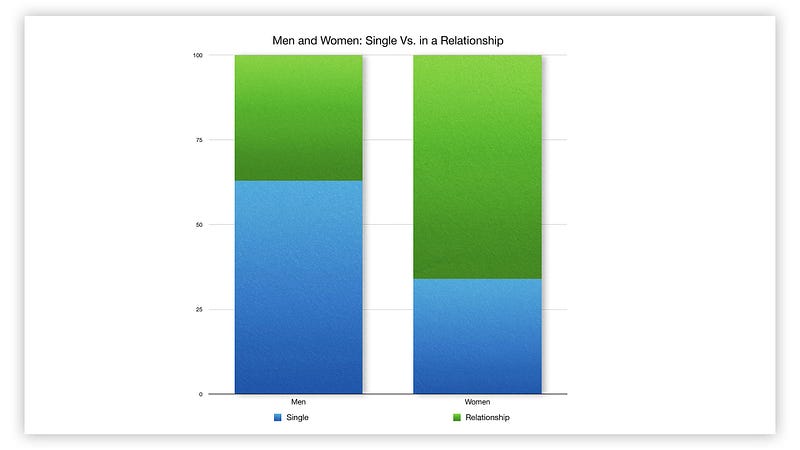Understanding the Modern Landscape of Male Loneliness in Relationships
Written on
Chapter 1: Reflections on Relationships
In 2018, while conversing with my friend Bob in Los Angeles, he shared a profound insight that forever altered my perspective on relationships. At ninety-three, Bob had a life story marked by war, addiction, and imprisonment, yet he emphasized that “Marriage is the hardest thing I’ve ever done.” His experiences through the turmoil of war and the struggles of addiction paled in comparison to the complexities of marital life.
Marriage presents a unique kind of challenge—it's a persistent, day-to-day commitment that requires genuine care and attention. A military veteran once described combat as a mix of long stretches of monotony punctuated by brief moments of high adrenaline. Marriage, on the other hand, is characterized by a steady, often dull routine, occasionally broken by moments of joy. If one is fortunate enough to find a partner they genuinely enjoy being with, each day can feel like a treasure filled with laughter and affection. Yet, this ideal seems elusive for many in 2024.

Returning to Bob's wisdom, let’s delve into the current concerns surrounding younger men. There’s a prevalent narrative suggesting that single young men are facing a crisis in today’s dating world. Headlines scream about the purported “loneliness epidemic,” suggesting that dating has become an insurmountable challenge, exacerbated by dating apps and an overwhelming abundance of single individuals.
Interestingly, a recent Fox News segment featuring Aldo Buttazzoni from PragerU discussed men who are reportedly seeking relationships abroad, attributing this shift to factors like pornography and gaming culture. Buttazzoni referenced Pew Research, which indicated that 63% of U.S. men under thirty are single, a statistic that has fueled various media outlets’ narratives about the supposed crisis among young men.
Section 1.1: Dissecting the Crisis Narrative
From right-wing media to Psychology Today, the commentary around this so-called crisis varies but often hinges on similar themes: men are isolated and unable to engage in relationships due to societal shifts like women’s liberation. Critics like Ben Shapiro have condemned the sexual revolution as disastrous, while others point to the economic struggles faced by men today.
However, a deeper examination reveals that these narratives may not capture the full reality. The portrayal of young men as victims of societal decline overlooks significant nuances. For instance, Gregory Matos PsyD attributed this crisis to factors like rising standards and skills deficits among men when it comes to dating.
Subsection 1.1.1: A Closer Look at Research

The Pew Research statistics, while alarming, do not account for the complexities of modern relationships. A closer analysis shows that while 63% of men under thirty report being single, this does not necessarily equate to loneliness. The statistics alone fail to identify the individuals involved and neglect to consider that many young men are not actively seeking relationships.
Chapter 2: The Reality of Modern Dating
Continuing the discussion, it’s essential to consider the implications of the findings. The data indicates that a significant portion of single individuals, particularly men, are not seeking relationships.
A study by Pew found that 57% of singles are not in pursuit of romantic connections, while an additional 22% are only interested in casual encounters. This shows that the narrative of loneliness driven by a lack of relationships is misleading, as many individuals are comfortable with their status.
Section 2.1: Debunking the Technology Myth
The final pillar of the loneliness epidemic narrative suggests that technology, especially dating apps, is to blame. However, historical data demonstrates that the trend of marrying later began long before the rise of digital technology.

In fact, the rise of marriage ages correlates with increased life expectancy, suggesting that individuals are simply taking more time to enjoy their youth before committing to long-term relationships.
In conclusion, the narratives surrounding male loneliness and the so-called dating crisis often overlook essential truths. As Bob wisely noted, relationships require effort and resilience. Instead of attributing blame to societal changes or technological advancements, perhaps we should focus on understanding the intricate dynamics of love and the realities of modern dating.

Thank you for taking the time to explore this perspective. For further insights, you can find more writings on my Substack, The Science of Sex.